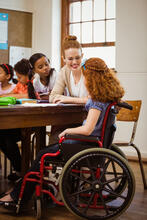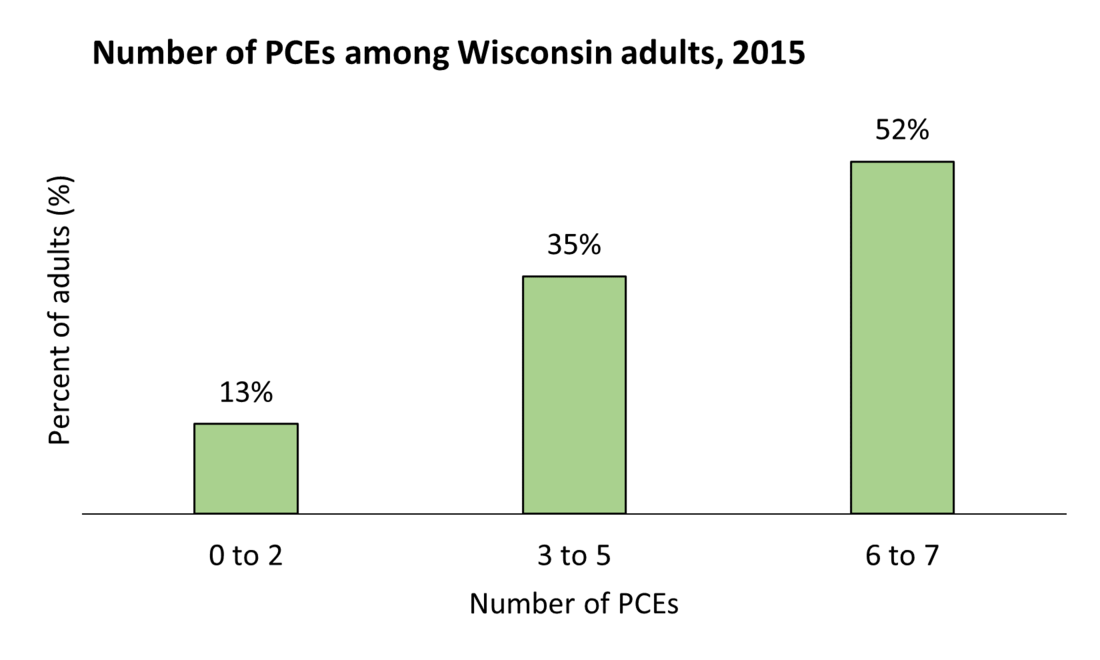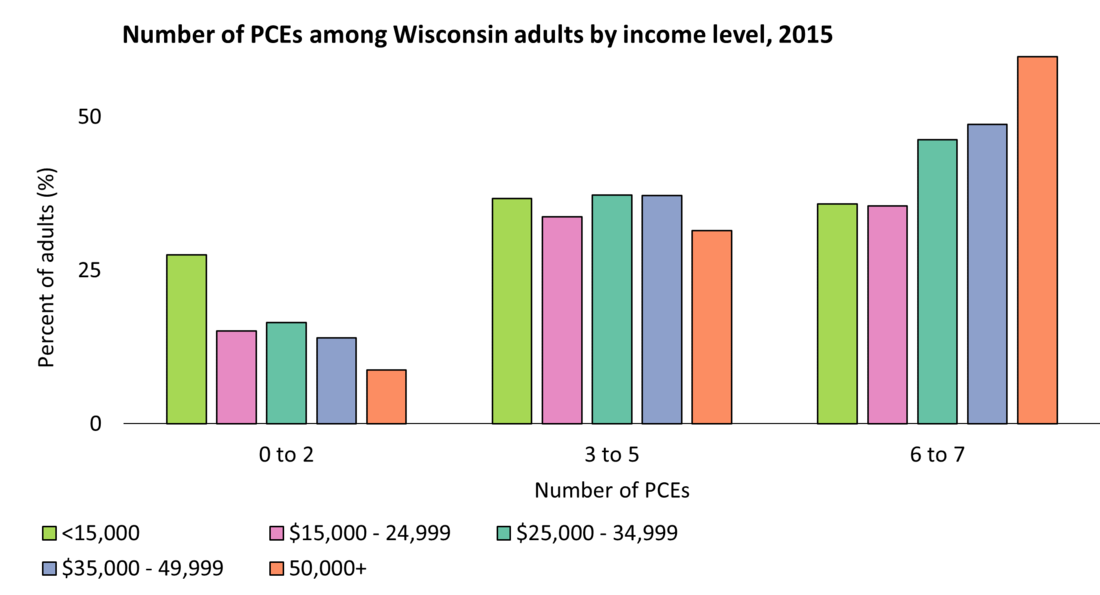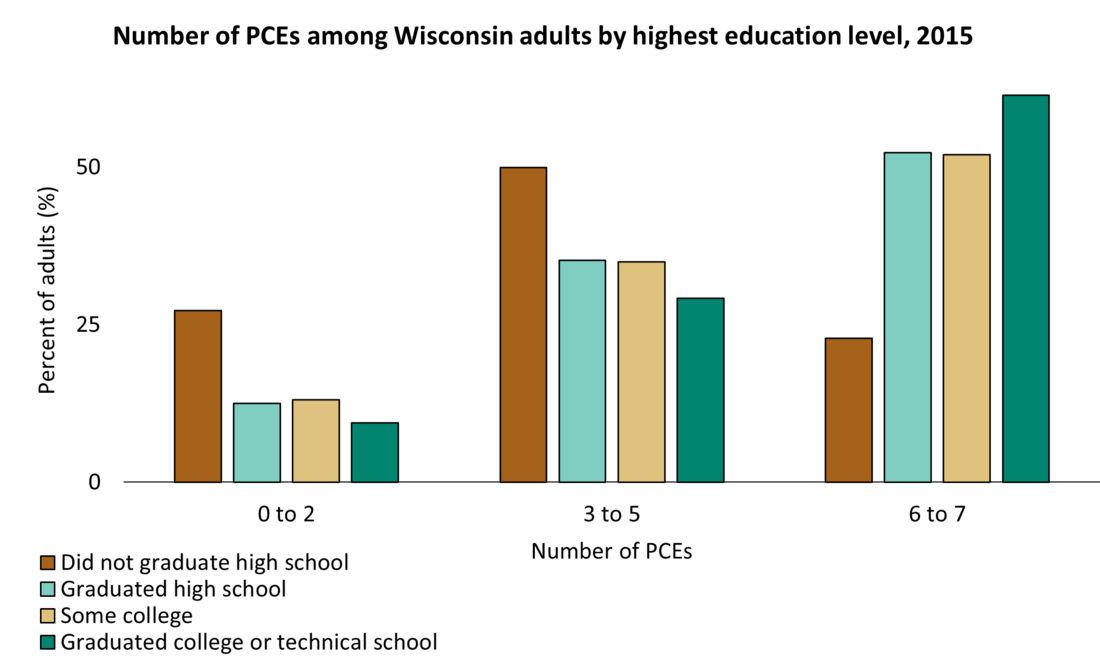Positive Childhood Experiences in Wisconsin
Positive childhood experiences (PCEs) are the safe and stable relationships and community environments that children experience in their families, schools, and neighborhoods. Like adverse childhood experience (ACEs), they play an important role in health later in life. PCEs make it more likely a child will have a healthy adulthood.
Examples of PCEs include:
- Family support, communication, and resiliency.
- Neighborhood safety and community.
- School safety.
- Sense of belonging and friend support.
- Support from non-parent adults.
How do PCEs affect health?
PCEs promote good health later in life and help reduce the risk of negative health outcomes both in people with and without ACEs. Experiencing stability, safety, and belonging as a child is associated with increased resilience (or ability to cope with adversity) and lower risk of:
- Overall poor health.
- Depression.
- Substance use.
- Emotional distress.
How common are PCEs in Wisconsin?
According to the Wisconsin Behavioral Risk Factor Surveillance System, over 50% of Wisconsin adults have six to seven PCEs. The fewer PCEs someone has, the greater their risk of poor health and the more impact ACEs have on their health. Around 1 out of every 10 Wisconsin adults has experienced two or fewer PCEs.
Some demographic groups have a lower number of PCEs than others. People with lower levels of income or education levels tend to have a lower PCE count than those who make over $50,000 or have a higher education level. Programs to promote PCEs, such as skill-based programs for parents and children, are key to help increase PCEs for everyone—regardless of economic opportunity.





